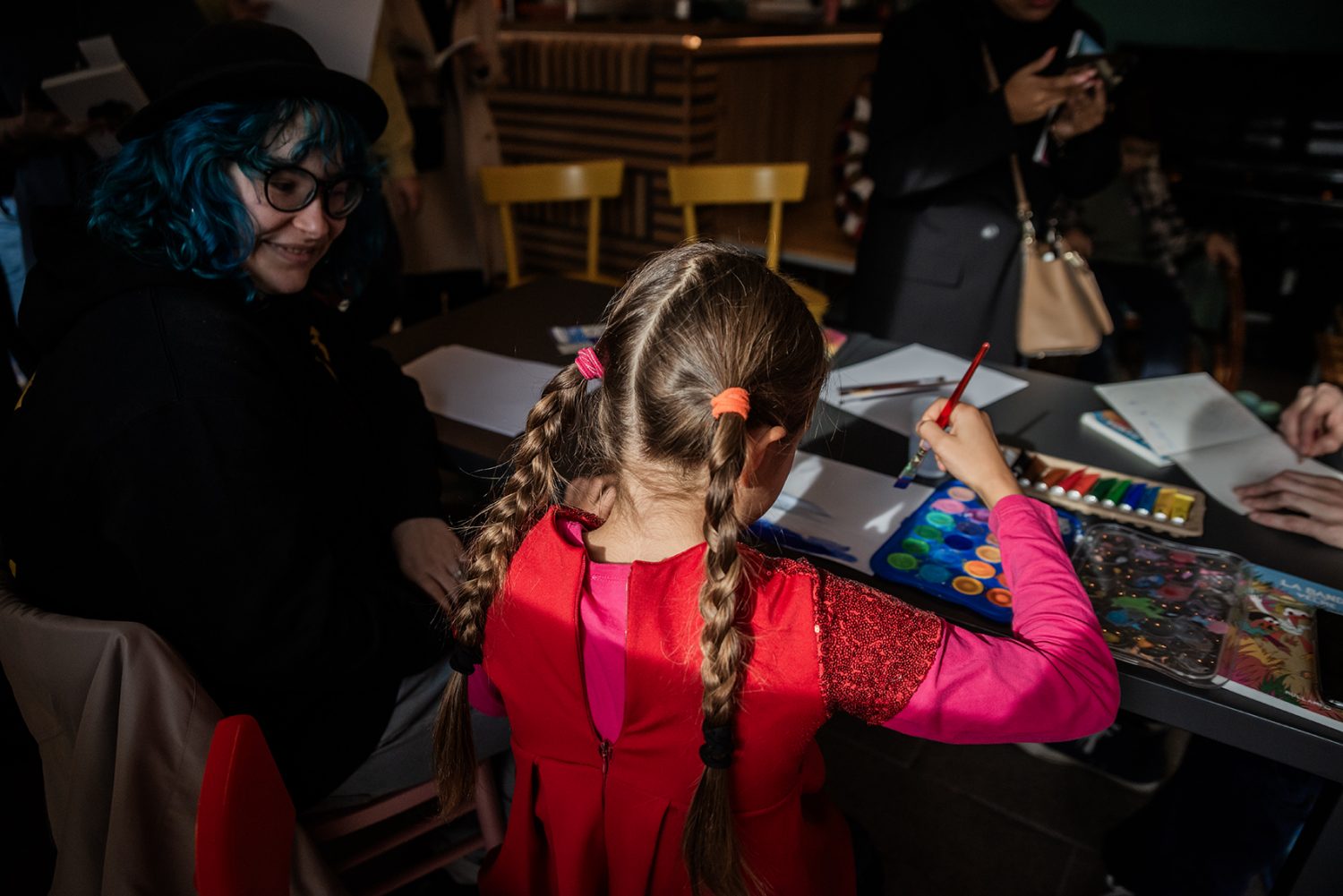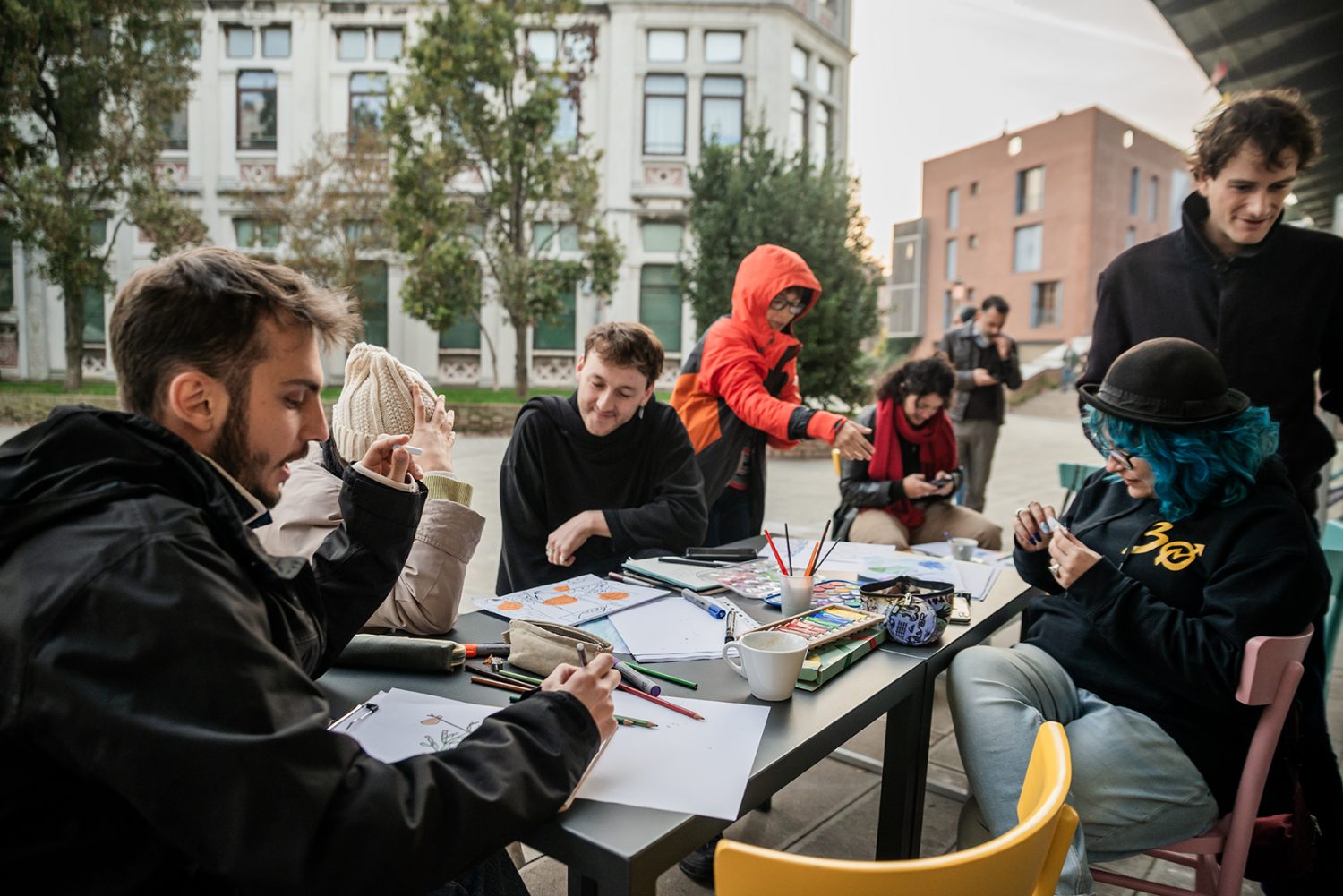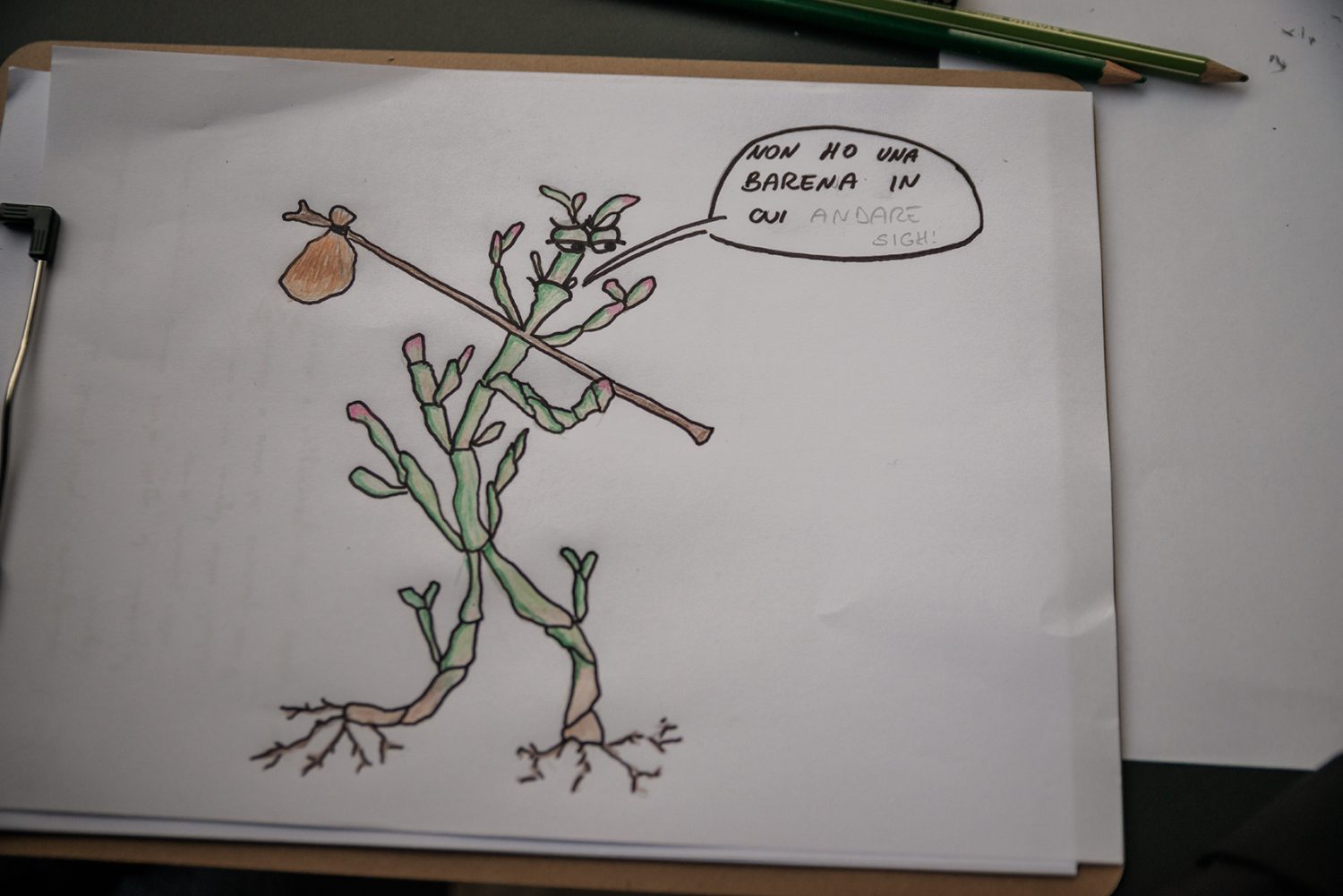by Jacc Griffiths
Democracy in action is not confined to grand political arenas—it manifests in the smaller, often overlooked spaces of daily life. This is the principle driving European Alternatives’ ongoing youth workshops as part of the Critical ChangeLab project, where young people will explore how rights intersect with everyday experiences in contexts like schools, families, workplaces, and youth organizations. In this project, we ask: where and how does everyday democracy take place; how do we reproduce (or not) democratic processes in contexts external to governmental institutions, such as at school, in the workplace, at home or amongst friends; and how can we make our voices heard even without institutional and social infrastructure to accompany them?
To find out, in the first participatory action research (PAR) cycle, the Critical ChangeLab research team at European Alternatives worked with young people working at the Maison de l’Europe in Paris. Over three sessions, we approached the subject of democracy in everyday life, and decided on ways in which democratic tools and processes could be implemented. Our researcher was joined by five participants aged 19-22. They shared a similar background as students of political science and international relations, working in either internship or civil service positions at the Maison de l’Europe, whose objective is to encourage open discussion of European projects and issues, to provide information and to promote active and inclusive citizenship through cultural activities and participatory conferences.

Workshop session in Venice, CCLABS © Claudia Correnti
The participants agreed that making time and space for a discussion about their workplace allowed them to compare perspectives and to come up with new ideas and fresh approaches to their shared difficulties. It was the their collective experience of working at the Maison de l’Europe which brought about the question of how to voice opinions and effect change in the workplace. To do this, we discussed over the course of several sessions what it means to be heard, and how we can proceed from democracy in discussion to democracy in action.
The outcome of this Critical ChangeLab was the co-creation of a chart of social rights and duties in the non-profit sphere. The objective, decided by the participants, was to introduce this document to their colleagues as a means of vocalizing the need for mutual respect, organization and communication in the workplace. Having such an artefact is thus beneficial to them and the researchers alike, because it represents a product of our collaboration.
By engaging with youth participants, we intend on transforming our political activist expertise into youth-led discussion, context-relevant exercises and solution-driven processes throughout the labs. Involving primarily youth from underrepresented communities, we seek to underline the importance of making space for diverse voices and embodied experiences.

Workshop session in Venice, CCLABS © Claudia Correnti
Why Focus on Rights?
European Alternatives understands rights as both political constructs and social contracts shaped by lived experiences. Formal rights, protected by laws and conventions, often feel abstract to young people. The workshops will shift focus to everyday rights—those experienced through interactions at home, school, and work. Rights are not just words on a paper. They are performed and negotiated through lived-experience and social practice, and can vary greatly according to the context. Our reflection includes recognising the different ways in which rights take shape – how they have evolved and may evolve further, as well as their precariousness. In-line with the Critical ChangeLab Critical Literacies Framework, we engage with rights beyond ‘human-human’ relations, including ‘human-nature’ and ‘human-technology’; these are necessary elements of a discussion of rights in modern society. Our desire is that youth start conceiving their rights as active, not passive, social as well as political, and subject to changing socio-political climates, for better or worse.
Creative exercises for life
The second PAR cycle labs aim to deepen participants’ understanding of democratic practices, conflict resolution, and cultural deconstruction while fostering active citizenship. Through creative exercises and real-life examples, they will explore alternative democratic approaches, moving beyond conventional political frameworks. They will learn to identify conflicts, from social media issues to local disputes, and seek collective solutions. The young people involved in the process will engage in discussions about rights as both political constructs and everyday social contracts, understanding that rights are not fixed but evolve through personal and communal interactions. They are encouraged to reflect on how social norms and policies affect their daily lives and how they can advocate for change through participatory processes.
The process should allow them to rethink their rights as dynamic social agreements rather than static legal constructs and recognizing how democracy functions at various levels—from personal decisions like choosing a restaurant to community-led initiatives. Participants will explore perspectives on rights in contexts like schools, workplaces, and even human-nature relationships. They will explore how small-scale actions can drive meaningful societal change, developing practical tools for activism and long-term community engagement.
The labs also encourage youngsters to consider how decision-making processes operate in informal and formal settings and how localized actions can inspire broader societal change. For example, if a youth group successfully advocates for better school policies, how can their strategies be shared and adapted in other contexts? They learn how to extend their influence through peer networks, social campaigns, and community projects.

Workshop session in Venice, CCLABS © Claudia Correnti
The way forward
Through these workshops, European Alternatives seeks to transform everyday encounters into spaces of democratic action. By engaging youth in critical, creative, and context-specific explorations of rights, the workshops will empower youth participants to become engaged, thoughtful citizens ready to shape the future through everyday democratic practices. By emphasizing collaborative inquiry, creative problem-solving, and contextual learning, the workshops provide tools for enacting change and foster a participatory culture that values diverse perspectives. As they explore the intersections of rights, democracy, and social responsibility, they will learn to navigate complex societal challenges, envision alternative futures, and create meaningful impact in both local and global contexts – becoming change-makers in the process.
Critical Changelab is funded by the European Union’s Horizon Europe research and innovation programme under grant agreement number 101094217. Views and opinions expressed are however those of the author(s) only and do not necessarily reflect those of the European Union or the European Research Executive Agency (REA). Neither the European Union nor the granting authority can be held responsible for them.